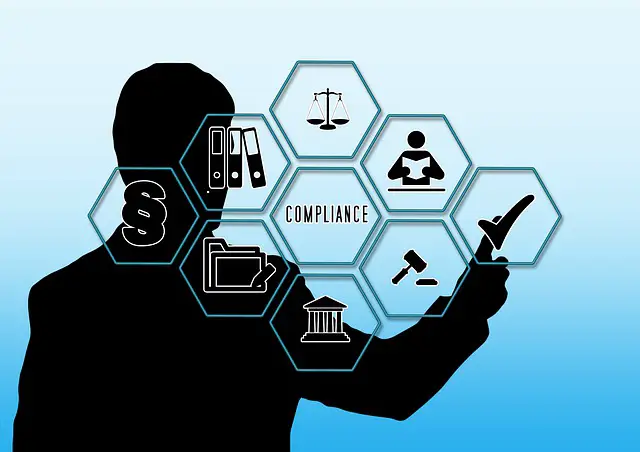Introduction

Legal ethics form the bedrock of the legal profession, ensuring that lawyers uphold the highest standards of integrity, competence, and professionalism. Understanding and adhering to legal ethics is crucial not only for maintaining public trust but also for ensuring fair and just legal practices. In this blog post, we’ll explore the core principles of legal ethics, common challenges faced by legal professionals, and best practices for maintaining ethical standards in the legal field.
Core Principles of Legal Ethics

- Confidentiality One of the most fundamental ethical principles in law is confidentiality. Lawyers are required to keep client information private and secure, except in cases where disclosure is mandated by law or necessary to prevent significant harm. This principle fosters trust and ensures that clients can freely share sensitive information with their attorneys. Learn more about the importance of confidentiality in legal practice.
- Competence Legal professionals must provide competent representation to their clients. This involves having the necessary legal knowledge, skill, and preparation to handle a client’s case effectively. Competence also includes staying updated on legal developments and ensuring that one’s legal services meet the required standards. Discover what constitutes competent legal representation.
- Conflict of Interest Lawyers must avoid conflicts of interest that could impair their ability to represent their clients impartially. This includes situations where a lawyer’s personal interests, relationships, or previous engagements could compromise their professional judgment. Identifying and addressing potential conflicts of interest is crucial for maintaining ethical standards. Find out how to manage and avoid conflicts of interest.
- Honesty and Integrity Honesty and integrity are essential for the credibility of the legal profession. Lawyers must be truthful in their dealings with clients, courts, and other parties. This includes avoiding fraudulent conduct, misleading statements, and deceitful practices. Read about the role of honesty and integrity in legal ethics.
- Zealous Representation While maintaining ethical standards, lawyers are also expected to advocate vigorously on behalf of their clients. Zealous representation means working diligently to achieve the best possible outcome while adhering to ethical constraints and legal boundaries. Explore how to balance zealous representation with ethical obligations.
Common Ethical Challenges

- Handling Confidential Information Safeguarding client confidentiality can be challenging, especially with the rise of digital communication and data breaches. Lawyers must implement robust security measures and be cautious about sharing information through electronic means. Learn strategies for protecting confidential information.
- Dealing with Unethical Behavior by Clients When clients engage in unethical or illegal conduct, lawyers face the dilemma of maintaining their client’s confidentiality while adhering to legal and ethical obligations. Navigating this balance requires careful consideration of professional and legal responsibilities. Discover how to address unethical behavior by clients.
- Avoiding Overbilling and Fee Disputes Ethical billing practices are crucial to maintaining trust and avoiding disputes. Lawyers should ensure that their billing practices are transparent, fair, and accurately reflect the work performed. Clear communication about fees and billing arrangements can help prevent misunderstandings. Read about best practices for ethical billing.
- Maintaining Professionalism in Adversarial Situations In adversarial proceedings, maintaining professionalism and civility is essential, even when faced with hostility or aggressive tactics from opposing parties. Upholding respect and professionalism helps preserve the integrity of the legal process. Find out how to maintain professionalism in challenging situations.
Best Practices for Upholding Legal Ethics

- Ongoing Education and Training Continuous education and training in legal ethics are vital for staying informed about changes in ethical guidelines and legal standards. Many jurisdictions require lawyers to complete regular ethics courses as part of their continuing legal education (CLE) requirements. Explore the importance of ongoing ethics education and training.
- Implementing Strong Internal Policies Law firms should establish and enforce internal policies and procedures related to ethical conduct. This includes creating guidelines for handling conflicts of interest, managing client information, and addressing ethical dilemmas. Learn about creating effective internal ethics policies.
- Seeking Guidance and Consultation When faced with ethical dilemmas, seeking guidance from peers, mentors, or ethics committees can provide valuable perspectives and support. Consulting with others can help ensure that decisions align with ethical standards and professional responsibilities. Discover how to seek guidance on ethical issues.
- Promoting a Culture of Ethics Fostering a culture of ethics within a law firm or legal organization involves encouraging ethical behavior, recognizing ethical achievements, and addressing unethical conduct promptly. Promoting an ethical culture helps maintain high standards and reinforces the importance of ethical practices. Find out how to promote a culture of ethics in your legal practice.
Frequently Asked Questions

- What are the consequences of ethical violations in the legal profession? Consequences of ethical violations can range from disciplinary actions by bar associations, including suspension or disbarment, to civil liability and damage to professional reputation. Violations can also impact client trust and the integrity of the legal system. Read about the potential consequences of ethical violations.
- How can lawyers address potential conflicts of interest? Lawyers should conduct thorough conflict checks before accepting new clients or cases and disclose any potential conflicts to their clients. In cases where conflicts are unavoidable, lawyers may need to seek informed consent from clients or withdraw from representation. Learn how to address and manage conflicts of interest.
- What steps should a lawyer take if they suspect a colleague of unethical behavior? Lawyers who suspect unethical behavior by a colleague should follow appropriate reporting procedures, which may involve notifying the relevant disciplinary authority or ethics committee. It’s important to handle such situations professionally and confidentially. Find out the steps for reporting unethical behavior.
- Can lawyers be held responsible for their clients’ unethical actions? Lawyers are not typically held responsible for their clients’ actions; however, they must avoid assisting in or condoning illegal or unethical conduct. If a lawyer is found to have knowingly participated in or facilitated unethical actions, they may face disciplinary consequences. Read about a lawyer’s responsibility for client actions.
- How can law firms ensure compliance with ethical standards?